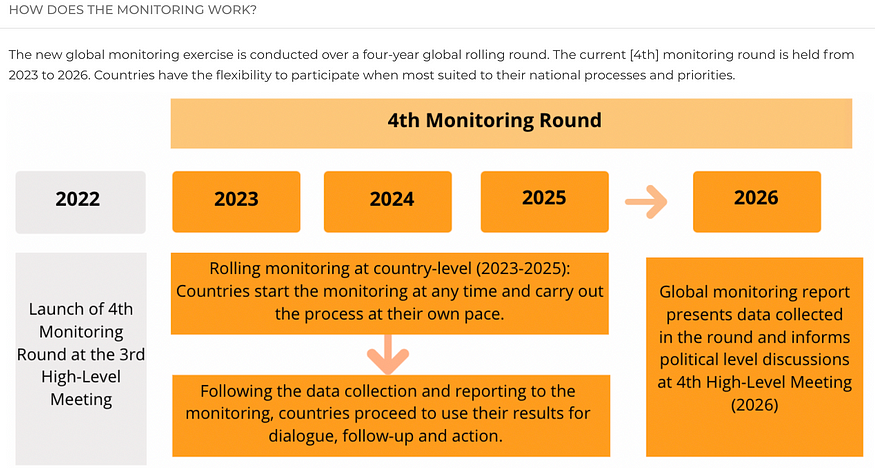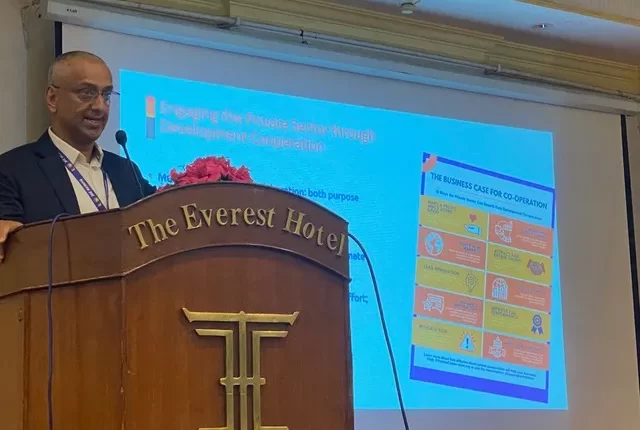The Ministry of Finance’s International Economic Cooperation Coordination Division (IECCD) has initiated a new assessment aimed at making private sector and CSO partnerships for development co-operation more effective. The assessment involves monitoring and collection of data on CSO and private sector engagement in development cooperation at policy, programme and project levels and understanding the political, financial, legal, and policy context in which diverse group of CSOs operate.
This monitoring is expected to lead to more effective engagement and development cooperation, promote synergies and collaborations, and avoid fragmentation and duplication of efforts, contributing to more effective and inclusive partnerships that can effectively leverage the strength of CSOs and the private sector.
The Government initiative is part of a voluntary assessment process Nepal has agreed under the Global Partnership for Effective Development Co-operation (GPEDC), a multi-stakeholder platform of governments and organizations to improve effectiveness of development aid so that it helps achieve the SDGs. Nepal is one of the countries that have voluntarily agreed to be assessed for aid effectiveness during the 4th round of the GPEDC, which started in 2023 and is scheduled to complete by 2026.

The launch event convened a diverse group of development stakeholders, encompassing government dignitaries, civil society, private sector representatives, trade unions, and development partners.
Mr. Shreekrishna Nepal, Joint Secretary of the Ministry of Finance, set the tone with his opening address, underscoring Nepal’s continued commitment to the GPEDC’s core principles — country ownership, results-driven focus, inclusive partnerships, and transparency and accountability. He voiced optimism that Nepal’s participation in this monitoring round will fortify the nation’s development coordination landscape. He also highlighted the collective ambition to ensure that every facet of development cooperation benefits Nepal’s citizens.
In a video message, Mr. Vitalice Meja, Executive Director of Reality of Aid Africa & Non-Executive GPEDC Co-Chair, said, “…civil society organisations have an indispensable role to play in ensuring the most effective and accountable use of development cooperation resources. The private sector is pivotal in job creation, alleviating poverty, ensuring societal equity and sustainability, and offering financing and investment opportunities.” (read Nepal page in GPEDC Dashboard)
Mr Narayan Dhakal, IECCD Under Secretary, and Mr Leigh Mitchell, UNDP Chief Technical Adviser, presented insights into the GPEDC’s history and evolving monitoring framework.
Presentations underscored the importance of multi-stakeholder dialogue and emphasised the distinct roles of various entities. These include civil society organisations and the private sector, each recognised as independent development actors. Together, they play a pivotal role in pinpointing joint solutions and addressing challenges to effective development cooperation.
Their presentations also touched upon the potential of private sector participation in addressing global challenges, achieving the 2030 Agenda, and promoting sustainable development, especially for underserved communities.
Subsequent dialogues centred on the challenges and achievements of the civil society and private sectors in advancing Nepal’s sustainable development and the SDGs.
The GPEDC advocates for development cooperation that is effective, inclusive, and rooted in principles like country ownership, results-focused actions, transparent partnerships, and mutual accountability. Originating from the Fourth High-Level Forum on Aid Effectiveness in Busan, South Korea, in 2011, the GPEDC unites governments, organisations, civil society, and the private sector to collaboratively work towards the Sustainable Development Goals (SDGs).
This dialogue was facilitated by the Effective Development Financing and Coordination II (EDFC-II) project. Supported by the United Kingdom Foreign, Commonwealth and Development Office (FCDO) and UNDP, the project seeks to expedite Nepal’s progress towards the SDGs by enhancing the availability and efficient utilisation of varied development finance sources. Its primary focus is to bolster the Government of Nepal’s capacity in mobilising and managing development finance and to elevate the quality and accessibility of development finance data.


Comments are closed.